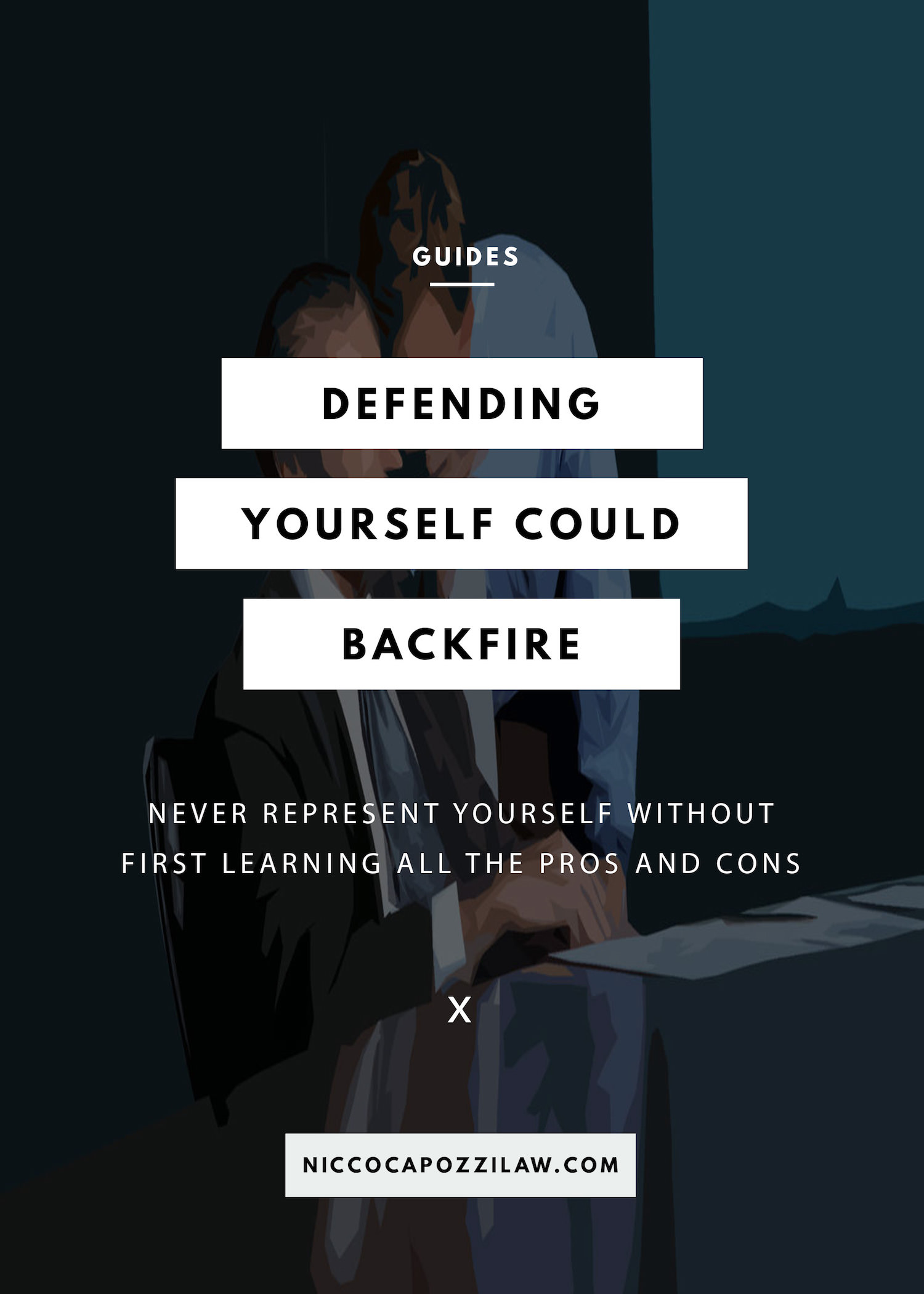Certain questions always get asked when potential clients call our firm. They typically ask about the likely outcome of the case (they want legal advice) and how much it will all cost. However, in normal day-to-day life, non-potential clients ask different questions once they find out I am a criminal defense lawyer. They ask: How can you represent criminals and what do you do when you know they are guilty? My answers are typically short even though my reasons are important. Rarely are they interested in really hearing my full explanation. Now is a good time to explain. So, bare with me a bit while we examine this issue from a variety of angles. Hopefully by the end I will have answered why I am a defense attorney and why you should care.
Sensitivity and specificity: borrowing from the medical field
Courtesy of: https://denversom.wikispaces.com/M2M+2x2+Tables
I was reading an interesting viewpoint about the relationship between criminal justice and medicine on Quora, and there was a very thoughtful response from one of the writers. I encourage you to check on the question and answer on that page. I thought I would add that argument here, with my own thoughts on the matter, because the response on Quora made tremendous sense to me. Here it is in a nutshell:
When doctors test for a disease, ailment or some other body condition there are essentially four possible results. First, the test could show a true positive -- the test shows you the thing is present in the body and it actually is present. Second, the test could show a false positive -- the test shows the thing is present but it actually is not present. Third, the test could show a true negative -- the test shows the thing is not present but it actually is. Fourth, the test could show a false negative -- the test shows the thing is not present and it is actually not present.
Sensitivity in medical test is the probability the test will be positive when the thing is actually present. A higher sensitivity means there will be less false negatives. A 100% sensitivity will detect the actual presence 100% of the time. In medicine, however, it is common that with highly sensitive tests there will also be a strong likelihood of some false positives. To help with this problem doctors often perform a number of tests even if a test is reliability sensitive.
Specificity is the chances that the test will find a negative result if it is present. That is, in highly specific tests the test should result in fewer false positives. A perfectly specific test (100%) will tell the tester every time the thing sought is not present. Like highly sensitive tests, doctors will often order several tests because with highly specific tests there will be a fair amount of positive tests.
The analogy to the criminal justice system made on Quora makes sense to me. Lay people (those not trained in law) generally have the mindset that the system works as if it has perfect sensitivity (100%) and perfect specificity (100%). Put simply, they believe the system serves to convict 100% of people that actually committed a crime (100% sensitivity) as well as letting free 100% of those people who did not commit a crime (100% specificity). But, as stated, you must make a choice in how you want the system (the test) to work as you cannot have perfect sensitivity and perfect specificity. You must choose whether you want a system that convicts all those who committed a crime or a system that ensures no innocent people are convicted. If you choose the first, then the system (working at 100% sensitivity) will necessarily spot a few false negatives (those actually innocent). Or you could choose the second option, which will work to protect every wrongfully charged person (working at 100% specificity) but this will result in a few false positives (those who did a crime).
Like the responses given on Quora, I also would choose a 100% specific test as I am much more comfortable with a system that serves to protect all those actually innocent and have a few "guilty" people escape justice. This is much better than 100% conviction rate that also wrongfully convicts some. So, in answer to the question, I am a defense attorney not for criminals per se but to ensure innocent people are not convicted. The job is to ensure the system works.
Reverse psychology: how can prosecutors convict an innocent person?
I have thought about this answer for awhile. I see similar answers on Quora and other thought provoking sights. It is important to challenge conventional thought in order to fully grasp this point.
Defense attorneys frequently get a bad reputation because they represent people charged with crimes. Despite the presumption of innocence it always surprises me just how many people believe that a person must have done something simply because he/she was charged with a crime. I see this all the time when questioning prospective jurors. Many believe there must be actual facts establishing guilt simply because a person is charged. Of course, that is not the way it is supposed to work.
But defense attorneys are not the only attorneys in the courtroom in criminal cases. Their counterpart, the prosecutor, is just as responsible for making the system work as the defense attorney. They too are supposed to believe in the presumption of innocence -- after all, their job is not to convict but to ensure "justice" is done.
It is naive to think no innocent person ever gets convicted. It happens every day in every court around the country. Even if a person is not completely innocent they often take plea deals and admit to crimes they did not commit. It happens because defendants know the system is often not fair and they take substantial risk in pushing the case to trial. So this all begs an important question:
How can a prosecutor convict an innocent person?
Why do prosecutors get to always be considered the protectors of our society even when innocent people are convicted? Is it not worse to send an innocent person to jail than to let a guilty one free?
Our system is not static, meaning it is not black and white. Guilt or innocence is proven through argument. The prosecutor presents their argument while the defense presents theirs. That is the system in a nutshell -- if both sides do the best they can then the system works as intended. A defense attorney's job is quite similar to a prosecutor's job. They are simply two sides to the same coin; both work to ensure the system provides due process and fairness. The defense attorney works to ensure their client's rights are enforced while the prosecutor's job is to produce the evidence and argue why it establishes guilt. The defense attorney does not work to get guilty people off just like the prosecutor should not work to convict. There are bigger issues at play when the system works the way it is supposed to.
The system is designed for the accused not for punishment
This is a radical idea I admit but I believe it to be true. The American criminal justice system is designed more for the protection of the accused and not for punishing those accused of crimes. Of course the system works to charge people, try them in court, and then to potentially punish them. But once a person is accused the system's primary function, I believe, is to ensure the accused is afforded all their rights. This includes: the right to a presumption of innocence, the right to a trial, the right to remain silent, the right to present evidence, the right to confront their accuser, and other very important rights.
Our society, through our laws and ideals, have agreed that every person is afforded many rights when they are accused of crime. This implies that our society believes (ideally) that it is better to let the guilty walk than to convict an innocent person. Otherwise, the rules would be much different. For example, if the justice system's primary goal was to convict than we would not have the presumption of innocence and the right to remain silent (amongst other rights). As such, the defense lawyer acts as an advocate for society when he or she ensures the accused is given a fair trial. This is true even if the accused is a "bad" person because the attorney is acting not just for the individual but also for society in ensuring everyone's rights are enforced.
As such, I am very comfortable in my role as a defense attorney. After all, many of the people that complain about my profession seize from complaining when they themselves need a defense attorney.
What about those clients you know are guilty?
I never ask my clients if they are "guilty." As mentioned, guilt is only determined after the person makes their way through the justice system. This does not mean I do not ask about what happened. I want to learn all the facts, even if those facts ultimately hurt my client. Importantly, though, the conversation is never about how I can get a guilty person off. Instead, we talk about what happened and what the defenses will be, if there are any. We spend significant time on police procedure and whether there were any of my client's rights violated. My job is to ensure the prosecution cannot prove their case based on the facts presented. If the evidence is overwhelming then the strategy (generally) will be to try and get as good and fair a resolution as possible by way of a plea deal. But if the prosecutor does not present a fair offer of settlement then we push the case and fight to get an acquittal. However, I never push a case hard unless there is a reason to do so; that is, I never just fight a case to fight because that would not be in my client's best interest. If the evidence is weak, we fight. If the police violated my client's rights, we fight. If evidence points to another, we fight. If the prosector does not offer a reasonable plea offer, we fight. But we do not fight just to fight.
Applied to the question here, my job is not to judge my client. I do not base my legal advocacy on how I feel about my clients. If the case involves sensitive issues that I feel would be too emotional for me to handle I do not take the case. Otherwise, I represent my client fully and never ask about guilt.
Closing Remarks
I hope the thought experiment we just undertook helps you understand why it is I do what I do. I truly believe that defense attorneys serve society when they do their job in the right way. The same is true for prosecutors. I also hope that when you read stories about somebody you think "got off" that you remember this article and the reasons why perhaps that happened.
For another insight into why I am proud of never being a prosecutor please read on.







